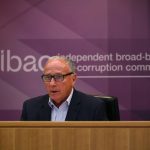Oh crap… we solved the skills crisis!
Let’s for a moment imagine a future where we finally manage to reverse the seemingly endless decline of STEM enrolments in Australia. Sounds great, doesn’t it? But the National Ambassador at Young ICT Explorers, Greg Miller, explains why this is not enough.
OK, maybe I jumped the gun, but hey, take a minute out of your hum-drum day for some positive self actualisation… close your eyes and imagine that day when for the first time in years we have more women than men enrolled in Science, Technology, Engineering and Maths (STEM) degrees; Secondary students are self selecting for STEM courses because they understand the linkage between these skills and jobs of the future; and we’ve not only bridged the digital divide but have a balanced playing field across public and private schools with ubiquitous access to the internet and the technology to create, not just consume.
Alright, I get it, we’re not there yet, but many are working day-in and day-out for that future… when we reverse the endless decline in STEM enrolments in Australia. But it’s not all doom and gloom. In the words of The Dave Clark Five… Signs, Signs, Everywhere are Signs…
- YICTE, in its seventh year, is on track for its biggest number of events, schools, students and projects ever!
- Other STEM competitions like First Robotics and F1 in Schools have also seen record turnouts 2015-2016
- Earlier this year we saw the first twinkle of good news: Data out of Queensland showed for the first time in years that ICT enrollments increased YOY! (rumour has it we may see similar signs from other states soon)
So back to our imagining the future. We may be closer than we think to our goal. But I must admit, if we do get there, my first thought is likely to be “Oh crap – now what do we do?” How do we ensure these bright minds find their way into the jobs of the future and not into the unemployment line?
Well, here are a few ideas:
- All Industries and companies have it in their power to create Work Inspirations programs. This low cost program, inspired by The Smith Family and the Foundation for Young Australians, goes to the heart of building confidence and desire in our youth to join the workforce.
- Show young people the path to jobs of the future. Get your kids, teachers and principals a copy of Google’s Careers With Code book or the Tech Girls are Superheros book.
- To the big corporates and especially the multi-nationals operating in Australia: Where’s your grad program at?! Are you making room for the next generation by creating career bands that allow for a “soft” entry and pathway to advancement… OR are you just treating a headcount as a headcount? The injection of new ideas and energy is infectious… Get it into your org like QBE has!
- Connect young innovators and “tech-preneurs” with the incubation and startup hubs operating in their cities. YICTE will focus on this in 2016, with an eye out for the winners of each of the nine events but also bright sparks within the events with commercial grade capability.
Ultimately we need to focus on both sustainability as well as building the necessary skills in young and old to align with the requirements of the jobs of the future as well as the future of work. It’s not enough to simply build the skills. These bright sparks will need a place to ignite!
This article was first published on LinkedIn and is republished with the permission of the author.
Greg Miller is National Ambassador at Young ICT Explorers. Previously he was Vice President and General Manager of Global Partner Operations at SAP Australia and New Zealand. Miller has a strong interest in Corporate Social Responsibility (CSR) initiatives. He is a member of the Digital Careers National Steering Committee and has more than 20 years of local and international experience in sales and business operations. He was responsible for the successful launch of the Unisys Sales Centre of Excellence, a first of its kind globally, which supported a $700M business. Prior to Unisys, Miller held senior sales positions with Peoplesoft, Siebel and Oracle.













Cheryl McDonnell
May 27, 2016 at 6:14 am
STEM
Science, Technology, Engineering and Maths (STEM) is the future of our futures, but there is no future without a healthy environment to sustain us.
The government withdrawing funding from the CSIRO, and defunding the Environmental Defenders Office has placed Australia in a position of sliding backwards in both understanding and protection of our environment.
Fully funded STEM education and research is required to prepare our nation for the challenges presenting themselves to us for our own survival.
STEM subjects also provide knowledge and training for people working in the growing disability sector. The incoming National Disability Insurance Scheme (NDIS) funds the needed supports and therapies for people with disabilities. The growing need for occupational therapists, speech pathologists, physiotherapists, dietitians, nutritionists should have been prepared and planned for ahead of the roll out of the NDIS. People with disabilities are needing more therapy hours to work out what their individual plans should look like to meet their needs. The burgeoning need for therapists has and will continue to slow the pace of the NDIS roll out.
With a shift in focus in the disability sector towards what people with disabilities can do there is an increased need to have people working and studying in civil engineering, medical engineering, and to have architects, draftspersons and others in the planning and building sector trained to work towards a more accessible society. In particular a need to focus on universal design principles in the workplace and in every stage of planning from individual houses to entire communities.
Where there are increased reasons to make STEM subjects a more attractive range of subjects for students to study one would think it is reasonable to expect the government to be increasing funding in the education of our nation in all STEM subjects.
Russell
June 13, 2016 at 12:01 am
Positive Discrimination
I agree it would be great to have more people involved in the sciences but why do have to count numbers of white or black, make or female. This has become ridiculous to the point of us depriving ourselves of the best people for the job in both the work force and our education institutions. I do not care if I work with a man or a woman, black person or white or whoever, but I do care if the person I should be working with didn’t get the job because numbers didn’t tally between the sexes or the colours, the infirmed or the healthy. we need to come to our senses and do the right thing by those who deserve it, not based on gender, creed or health.